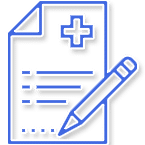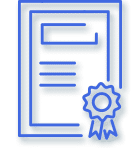What does an Addiction Counselor in Montana do? What is Their Job Role?
If your dream is to become a substance abuse counselor in Montana you've made a smart choice. According to the Bureau of Labor Statistics (BLS) job growth for addiction counselors is projected to grow an astounding 20.2 percent over the next 10 years so you should be in high demand.
This high occupational growth is due to several reasons. The growing opiate epidemic is taking its toll on the general populace, and the legal system is turning to treatment plans instead of incarceration in an effort to reduce recidivism. In addition, the health care industry is recognizing the need to provide coverage for mental health, especially as the baby boomer generation reaches retirement years.
The median annual income for substance abuse counselors in Montana is $41,050 and the highest earning 10 percent reported $63,330 annual income. Although this is slightly lower than the national numbers Montana enjoys a lower cost of living than most areas, making it about par. Billings, Montana has the fifth highest concentration of counseling jobs in the country.
Compare Popular Online Substance Abuse Counseling Programs
Overview
Substance abuse counselors in Montana are licensed by the Department of Labor and Industry. There is one professional credential, the Licensed Addiction Counselor (LAC) as well as a clinical supervisor credential.
Montana is one of the few states that accept an associate's degree for the required level of education. In addition to your degree you'll need to meet other educational experience requirements as well as clinical supervised work experience in specific areas of the field. Applications for licensure are handled by the Department of Labor and Industry. Once your application is approved you'll be notified by the testing agency as to the date, time, and place of your exam.
One of your experience requirements for licensure is to work for a specific period of time under the direction of a clinical supervisor. This is a person who has their license as well as experience and specific training to help others become substance abuse counselors.
Once you've passed the exam and earned your credential you'll be required to renew periodically. While your license is valid you must take continuing education courses before renewal will be granted.
Professional organizations will be an important aspect of your success in earning both your degree and credential. By joining one or more organizations you will have access to all the latest information on your chosen profession as well as opportunities to network with others in the field.
Montana Licensing & Certifications for Associates & Independent Counselors

As mentioned previously, there is only one level of licensure in Montana: the Licensed Addiction Counselor (LAC). Here are the requirements to earn the credential:
Earn at minimum an associate's degree in a Behavior Science field with an addiction treatment clinical application from an accredited institution.
270 clock contact hours of approved education specific to substance abuse as follows:
- 30 hours in Addiction Assessment
- 45 hours in Addiction Counseling
- 15 hours Addiction Treatment
- 6 hours in Alcohol and Drug Counselor Ethics
- 30 hours Alcohol and Drug Studies
- 12 hours of Multi-cultural Competency
- 12 hours in Pharmacology
- Planning and Documentation
- 120 related hours in classes of your choice
1000 contact hours of supervised (approximately six months full-time employment) clinical experience. You will need experience in 11 skill areas with specific contact hours of supervised experience worked in each area as follows:
- Assessment and patient placement - 100 hours
- Case management - 50 hours
- Client education - 35 hours
- Documentation - 35 hours
- Ethical and professional responsibility - 10 hours
- Group counseling - 100 hours
- Individual counseling - 60 hours
- Multicultural competency - 10 hours
- Referrals - 20 hours
- Screening - 30 hours
- Treatment planning - 50 hours
Education Requirements
Although you can enter the field with an associate's degree it must be specific. Here are the criteria for degrees:
- Associate's degree in alcohol and drug studies, addiction, or substance abuse
- Bachelor's or advanced degree in alcohol and drug studies, psychology, sociology, social work, or counseling
All degrees must be from an accredited college or university.
It's important that you verify your coursework meets the criteria set by the Board before you enroll so you can finish your degree and educational requirements in a timely manner.
If you choose to earn your bachelor’s degree you should verify your internship or practicum qualifies for the clinical supervised work experience required for your LAC.
CACREP Accredited Online Certification

Two types of accreditation are recognized in the United States; institutional and specialized. Institutional accreditation takes the entire institution into account while the specialized focus on professional preparation programs. The Council for Accreditation of Counseling and Related Educational Programs (CACREP) is a specialized accreditation that focuses on master’s and doctoral degree programs in counseling at colleges and universities worldwide. Only already-accredited institutions are eligible for CACREP review. The review for accreditation will center on programs offering graduate degrees in counseling.
Find Your Online Addiction Counseling Program
Choosing a CACREP-accredited program ensures that the program meets the highest of quality standards. Many counseling specialties are accredited bythe CACREP, including addiction counseling. Accredited addiction counseling programs prepare individuals to work with those affected by addictive behavior and their families. Addictive behaviors include alcohol, drugs, food, gambling, sex, and anything else that negatively affects your personal or work life by creating addiction behaviors.
CACREP-accredited programs will focus on treatment models and the phases of addiction including prevention, recovery, and relapse prevention. These 60-semester hour programs will include the application of interventions. When students choose a CACREP-accredited program they can be confident that:
- the program meets or exceeds national standards
- the program will focus on professional counseling rather than psychology oreducation
- the program has an excellent reputation
- CACREP graduates statistically receive higher scores on the National Counselor Examination for Licensure and Certification (NCE).
- the requirements for licensure will be met.
Department of Labor and Industry
Board of Behavioral Health
The Montana Board of Behavioral Health is on a mission to “protect the health, safety, and well-being” of Montana’s citizens. Members of the Board are appointed by the Governor and must be confirmed by the Montana Senate. The Board regulates and oversees the licensing and practices of all fields of counseling in the state. On their website, the Board strives to keep relevant content updated pertaining to current licensure requirements and professional regulations.
Address
301 S. Park, 4th Floor
P.O. Box 200513
Helena, MT 59620
Phone
(406) 444-5773
Website Address
http://boards.bsd.dli.mt.gov/bbh
Licensure:
- Licensed Clinical Professional Counselors (LCPC)
Addiction Counselor Testing & Examination Process in Montana
You will download your LAC credential application from the Licensed Addiction Counselor Program section of the BSD. Besides your personal information you will need:
- Official transcripts from all coursework
- Weekly time sheets from your clinical supervisor
- Fee of $250
- Fingerprint and background check
Although you will send your official transcripts you will also be required to list the individual coursework you've taken to show you have met the Board requirements for education. Likewise, your clinical supervisor or supervisors will be required to indicate that you have completed the specific hours of supervised experience required for each of the 11 skill areas as designated in the experience portion of your training.
Applications are usually processed within 30 days. Once approved you will be contacted via mail by the National Association for Addiction Professionals (NAADAC) with details on the time, date, and location you are scheduled to take the NAADAC Level I Exam.
The exam consists of 200 multiple-choice, objective questions and focuses on eight areas of expertise:
- Treatment admission (screening, intake and orientation)
- Clinical assessment
- Ongoing treatment planning
- Counseling services (individual, group, family, crisis intervention and client education)
- Documentation
- Case management
- Discharge and continuing care
- Legal, ethical and professional growth issues
There are three hours allowed for the exam and it will test your knowledge in the areas of:
- Counseling practice (40%)
- Pharmacology of psychoactive substances (30%)
- Theoretical base of counseling (15%)
- Professional issues related to Substance Use Disorder treatment (15%)
Your exam results will be sent directly to the BSD, which will then award your LAC credential.
Clinical Supervision Explained

Clinical supervision is your work experience training in specific areas of substance abuse counseling. A clinical supervisor in Montana must hold a LAC credential for a minimum of three years in a qualified treatment setting before they are allowed to train others.
A clinical supervisor holds a four-way role: teacher, mentor, consultant, and coach. They are trained to help new addiction counselors develop all of their skills on a three-level system. For example, if your documentation skills are at Level one and your individual counseling skills are at Level three you will need more help with documentation to bring all your skills to Level three simultaneously.
A clinical supervisor in Montana is also tasked with logging your experience hours every week to ensure you meet the 1000-hour requirement. They will transfer this information to your application when you are ready for your LAC and will verify on the application that they were your clinical supervisor and you performed the required work in a satisfactory manner.
Renewal and Continuing Education

In Montana your LAC expires every year between May 1 and June 30. Your license may be renewed online and must be renewed for you to continue meeting your legal obligation to the board. During the year your license is valid you will need to complete 20 contact hours of continuing education. The Montana Department of Labor and Industry maintains a list of acceptable continuing education courses each year and the list may be downloaded from the MDL website. Coursework from NAADAC are also accepted.
You should plan on making continuing education a monthly habit throughout the year, so you won't have to scramble during the month before your license expires. By accumulating two or three contact hours a month you can easily make the 20-hour requirement. All continuing education hour requirements can be taken either online or face-to-face.
Potential Counselor Career Path Options
- Addiction Counselor
- Alcohol and Drug Addiction Counselor
- Behavioral Health Specialist
- Certified Addiction Drug and Alcohol Counselor
- Chemical Dependency Counselor
- Mental Health Counselor
- School Counselor
- Substance Abuse Counselor
Associations & Organizations
You should plan to join one or more professional organizations as soon as you begin your education. Associations dedicated to substance abuse professionals have extensive benefits to members such as mentorship and networking opportunities. You will also benefit from the latest professional news, changes in legislation that may affect your career, and opportunities for advocacy.
Most professional organizations offer continuing education classes as well as discounts on books and other professional materials. You can find current schedules for conferences, seminars, workshops, and other educational platforms as well as job boards.
Many professional associations also maintain social media accounts and are a great way to network with peers on a daily basis. Once you join your professional organizations you'll be able to utilize all the benefits that meet your personal needs.
- Montana Association of Alcoholism & Drug Abuse Counselors
- Montana Association for Addiction Professionals
- The International Association of Addictions and Offender Counselors
- The American Society of Addiction Medicine (ASAM)
- National Association of Addiction Treatment Providers
